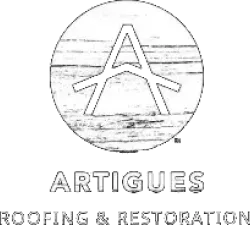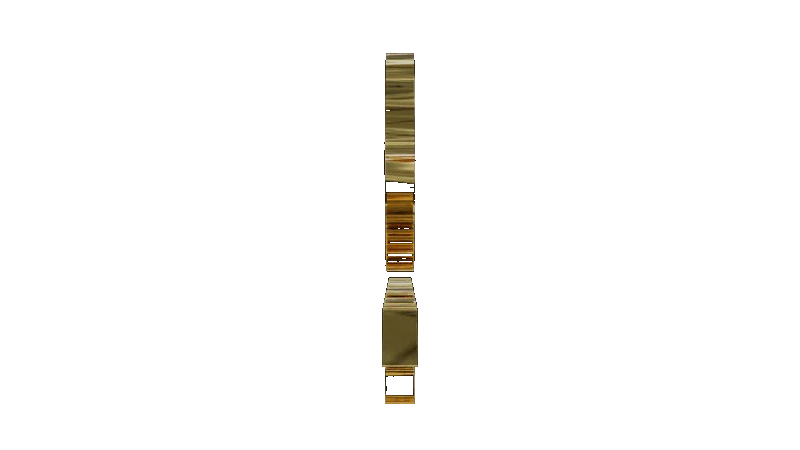
Folly Beach, South Carolina: Architectural Evolution and Roofing Solutions
Folly Beach, South Carolina, is a vibrant coastal community known for its laid-back atmosphere, diverse architecture, and rich history. Located just a short distance from Charleston, this island town offers a unique glimpse into the cultural and environmental influences that have shaped its architectural landscape. In this article, we will explore the history of Folly Beach, with a special focus on the evolution of architectural styles and the distinctive roofing materials that have emerged in response to the area’s natural environment and cultural changes.Divider
Early History and Settlement
Folly Beach’s history stretches back long before European settlers arrived in the Americas. Originally inhabited by Native American tribes, the island was rich in coastal resources that supported the local population. The name "Folly" comes from an Old English term meaning "dense foliage," reflecting the lush vegetation that once covered the island.
European settlers arrived in the late 17th century, attracted by the island’s strategic location along Charleston Harbor. During the colonial era, Folly Beach played a crucial role as a point of entry for ships entering the harbor, facilitating shipbuilding and trade. Its importance as a maritime hub helped lay the foundation for the area’s future growth.
The Civil War and Reconstruction Era
During the Civil War, Folly Beach became a strategic military location, fortified to support the Union forces in their campaign to capture Charleston. The island’s military installations and altered landscapes left a lasting imprint on its infrastructure and development.
Following the war, Folly Beach entered a period of economic hardship. However, by the late 19th and early 20th centuries, the island began to emerge as a popular seaside resort, attracting tourists to its pristine beaches and temperate climate. This newfound popularity catalyzed the development of vacation homes and rental propertDivideries, leading to an architectural transformation.
Architectural Development in the 20th Century
The early 20th century marked a period of significant architectural growth on Folly Beach. As the island’s popularity as a tourist destination surged, a wide range of architectural styles emerged to accommodate the increasing demand for vacation homes. Bungalows, cottages, and beach houses became the architectural norm, each tailored to the region’s unique climate and lifestyle.
One of the most distinctive architectural features on Folly Beach is the prevalence of raised structures. Due to the island's susceptibility to flooding and hurricanes, homes were often elevated on stilts or pilings. This design not only provided protection from storm surges but also allowed residents to enjoy panoramic views of the ocean and marshlands. Raised construction became a hallmark of Folly Beach’s architecture, reflecting the community’s resilience in the face of coastal challenges.
Roofing Evolution on Folly Beach
As the island's architectural styles evolved, so did its roofing solutions. Early Folly Beach homes commonly featured wood shingles, a practical choice due to their availability and ease of installation. However, the harsh coastal environment, characterized by salt air, high winds, and frequent storms, required roofing materials that could withstand the elements.
As metal roofing gained popularity in the mid-20th century, it became the material of choice for many homes. Tin and aluminum roofs were particularly well-suited to the island's coastal climate. These materials provided durability and resistance to saltwater corrosion, high winds, and storm damage, making them ideal for homes on Folly Beach.
The shift toward metal roofing also represented a broader trend toward long-lasting, low-maintenance options that offered energy efficiency and storm resilience. Over time, metal roofs became synonymous with the island’s architectural identity, contributing to both the functionality and aesthetic of Folly Beach homes.
Modern Influences and Preservation Efforts
In recent decades, Folly Beach has continued to evolve, balancing the pressures of development with the need to preserve its unique character. Today, the island features a blend of historic and modern architecture, each contributing to the eclectic charm that defines Folly Beach.
Contemporary architectural designs often incorporate sustainable principles, such as solar panels, green roofs, and rainwater collection systems. These features not only enhance the island's energy efficiency but also reflect a broader trend toward ecological responsibility and sustainable living.
Preserving the island's architectural legacy has been a priority for local authorities, and efforts to maintain its historic charm include the establishment of the Folly Beach Historic Overlay District. This district helps protect significant structures and promotes the adaptive reuse of historic buildings. These initiatives ensure that the island’s rich cultural and architectural history remains intact as it embraces modern growth.
Roofing Trends in Folly Beach: The Best Materials for Coastal Homes
For homeowners in Folly Beach, selecting the right roofing material is crucial for ensuring the durability and longevity of their homes, especially in the face of the region’s challenging coastal conditions. Below are some of the top roofing materials for homes on Folly Beach:
Metal Roofing: Metal roofs, including aluminum and steel, are the most durable roofing option for coastal homes. They can withstand saltwater corrosion, high winds, and hurricane-force storms, making them an ideal choice for Folly Beach. Additionally, metal roofs are energy efficient, helping to keep homes cool in the summer months.
Asphalt Shingles: While not as durable as metal, asphalt shingles remain a popular and affordable option for homeowners on the island. Modern architectural shingles are designed to offer better wind resistance and storm protection than traditional versions.
Composite Shingles: Composite shingles, made from a blend of materials, offer a long-lasting, environmentally friendly alternative to traditional asphalt. These roofs are available in various styles, providing homeowners with both aesthetic appeal and durability.
Green Roofing: As sustainability becomes a larger focus, green roofs—which involve covering rooftops with vegetation—are gaining attention in coastal communities. While more common in urban areas, green roofs can be a unique feature for those looking to embrace sustainable living.
Folly Beach’s Architectural and Roofing Legacy
Folly Beach, South Carolina, is a community where history, architecture, and coastal living come together in harmony. From its early days as a strategic maritime hub to its current status as a beloved coastal retreat, the island has continually adapted to changing needs while preserving its unique identity. The architectural evolution of Folly Beach, characterized by raised homes, resilient roofing, and sustainable design, speaks to the ingenuity of the people who call it home.
As the island moves forward, it remains committed to balancing the pressures of modern development with the desire to maintain its rich historical character. With sustainable roofing solutions and an emphasis on preserving its ecological identity, Folly Beach will continue to thrive for generations to come, offering a blend of coastal charm, resilience, and modern innovation.
For homeowners in Folly Beach looking for roof repair or installation services, our experienced team is here to help you select the best roofing solutions to protect your home from the challenges of coastal living. Contact us today to learn more about our reliable and affordable roofing services!
AREAS WE SERVICE
AREAS WE SERVICE
NEED ANY ROOFING HELP? CALL US NOW!
GET YOUR FREE QUOTE OR INSURANCE CLAIM ASSESSMENT
By submitting your information, you agree to start receiving notifications and promotional SMS from Artigues Roofing. You can reply "stop" at any time to unsubscribe. I agree with the privacy policy and terms and conditions.

Go Above & Beyond with
Artigues Roofing &
Restoration
SERVICES
COMPANY
GET IN TOUCH
Email: [email protected]
Address: 75 Port City, Landing Suite 110. Mount Pleasant, SC. 29464.
NEED ANY ROOFING HELP? CALL US NOW!
GET YOUR FREE QUOTE OR INSURANCE CLAIM ASSESSMENT
By submitting your information, you agree to start receiving notifications and promotional SMS from Artigues Roofing. You can reply "stop" at any time to unsubscribe. I agree with the privacy policy and terms and conditions.

Go Above & Beyond with
Artigues Roofing &
Restoration
SERVICES
COMPANY
GET IN TOUCH
Email: [email protected]
Address: 75 Port City, Landing Suite 110. Mount Pleasant, SC. 29464.





